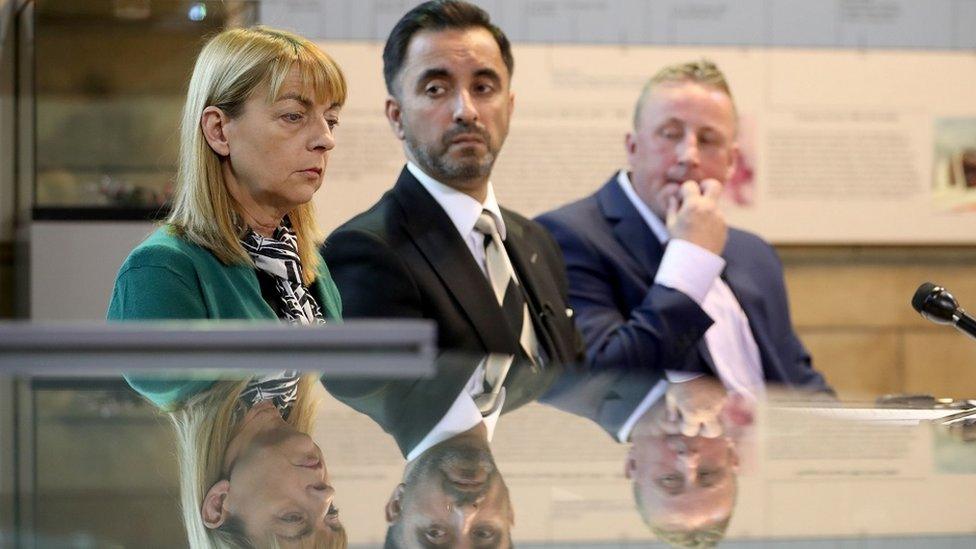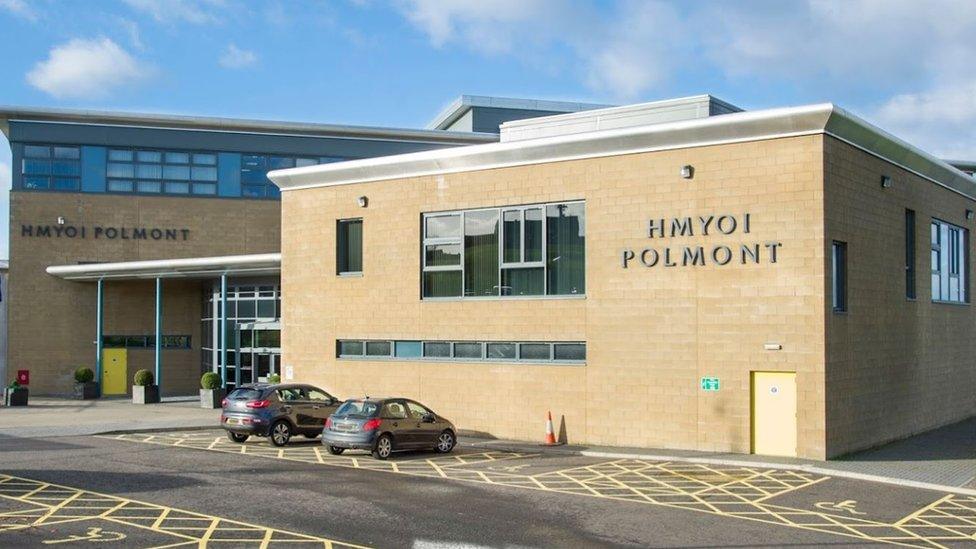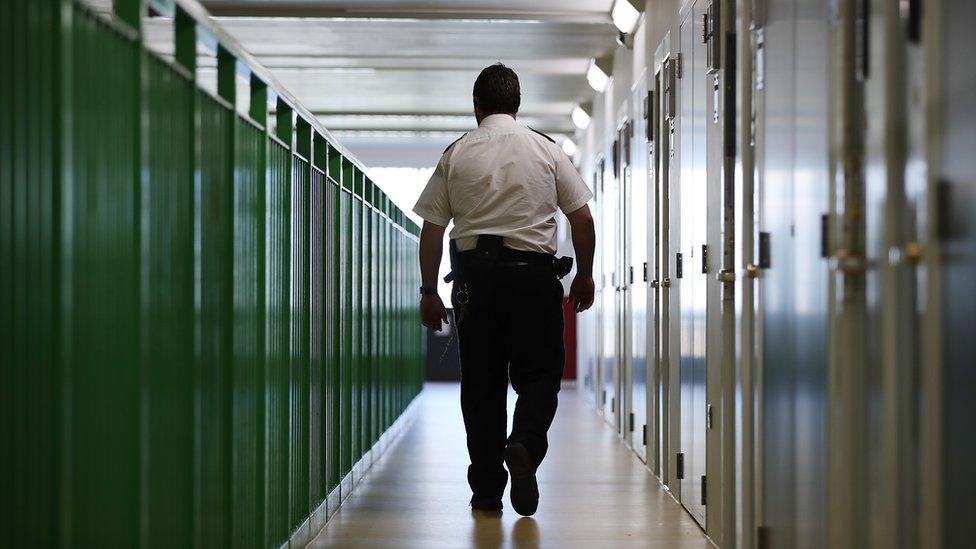Prisoners at Polmont young offenders institution could get phones in cells
- Published

Landline phones could be provided in cells at Polmont young offenders institution as part of a new trial.
Justice Secretary Humza Yousaf announced the measure in response to a review of mental health services after the deaths of two people in custody, external.
He said the routine strip-searching of inmates younger than 18 would also end.
The change was welcomed by the families of the two inmates, however they criticised the Scottish Prison Service (SPS) for not acting sooner.
They said the authorities had repeatedly failed to implement "life-saving recommendations" in relation to the running of the young offenders institution.
In a statement to Holyrood, external, Mr Yousaf said the introduction of phones to cells would promote positive family relationships and improve their mental health.
The justice secretary said he had asked the prison service to "explore the options" for an in-cell phone scheme "with necessary controls... in place".
"At present, prisoners in Scotland can access telephones in communal areas at certain times only," he added.
"In-cell phones have the potential to contribute to prisoners' wellbeing by making family contact significantly easier.
"They also have the benefit of improving access to national helpline services and technology can offer the potential to develop telehealth services and supports for well-being in prisons."
Mr Yousaf said the prison service would retain control over the phone numbers that prisoners could access and the ability to monitor calls.

Katie Allan's parents say she took her own life at Polmont YOI after staff failed to heed their warnings
A similar scheme has been introduced in prisons in England and Wales, where all calls are recorded and must only be made to numbers on an approved list.
Mr Yousaf said body-searches of young people would also end - a practice highlighted as "humiliating" by the family of 21-year-old Katie Allan, who took her own life in Polmont in 2018.
"The Scottish Prison Service will evaluate the impact of these changes after a year," he added
"In line with the development of the new female custodial estate, SPS will adopt a more trauma informed approach to its searching process for women."

Humza Yousaf announced the new measures in Holyrood
A review of mental health services for young people in custody, published earlier this year, made 80 recommendations, including the creation of a bespoke suicide and self-harm strategy.
It followed the deaths of Ms Allan in July 2018 and William Lindsay in October the same year, both at HMYOI Polmont.
Their solicitor, Aamer Anwar, said the review "exposed systematic failures at the heart of the prison regime in respect of mental health".
And he accused the SPS, the fatal accident inquiry system and Crown Office of failing to act on many recommendations made by inspectors over the course of a decade.

Linda and Stuart Allan, pictured with lawyer Aamer Anwar, have campaigned for improvements at Polmont
But he welcomed the moves to end body-searches and introduce in-cell phones.
"Bullying, self-harm and strip searching is what defined Katie Allan's prison experience," Mr Anwar said.
"No-one heard Katie or William's cries for help, we hope that the piloting of in-cell phones will mean that lives are saved.
"The Cabinet Secretary today described the mental health review was substantial, but as the last decade has shown, hundreds of recommendations have been repeatedly ignored and the SPS has proved incapable of reforming itself.
"Had the SPS acted then they might have saved the lives of Katie Allan, William Lindsay and so many others."
- Published21 May 2019

- Published23 November 2018

- Published10 July 2018
